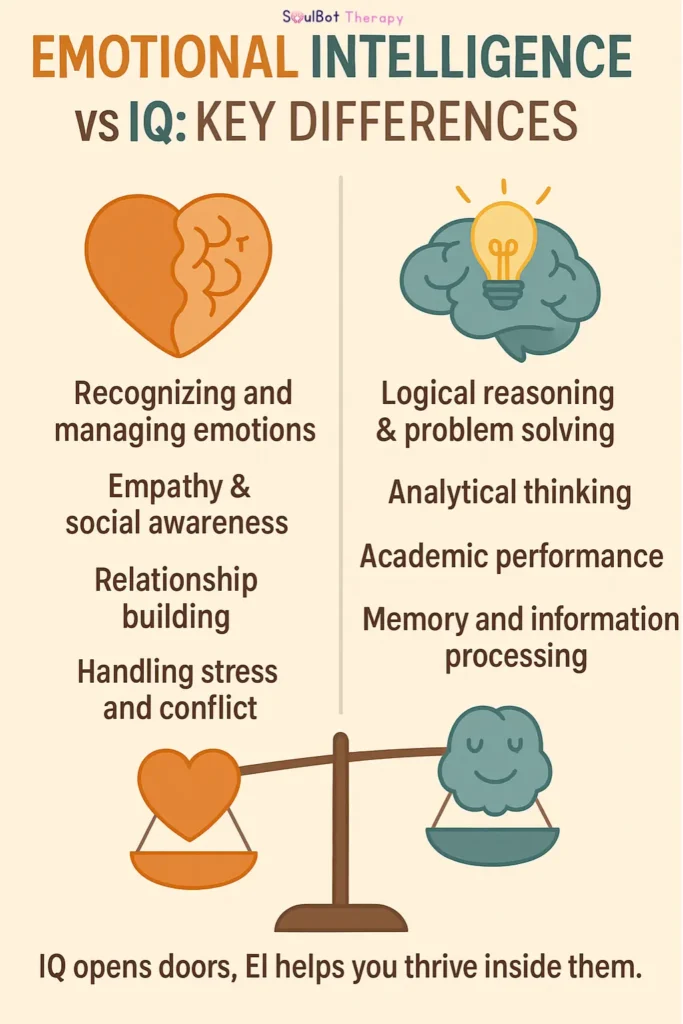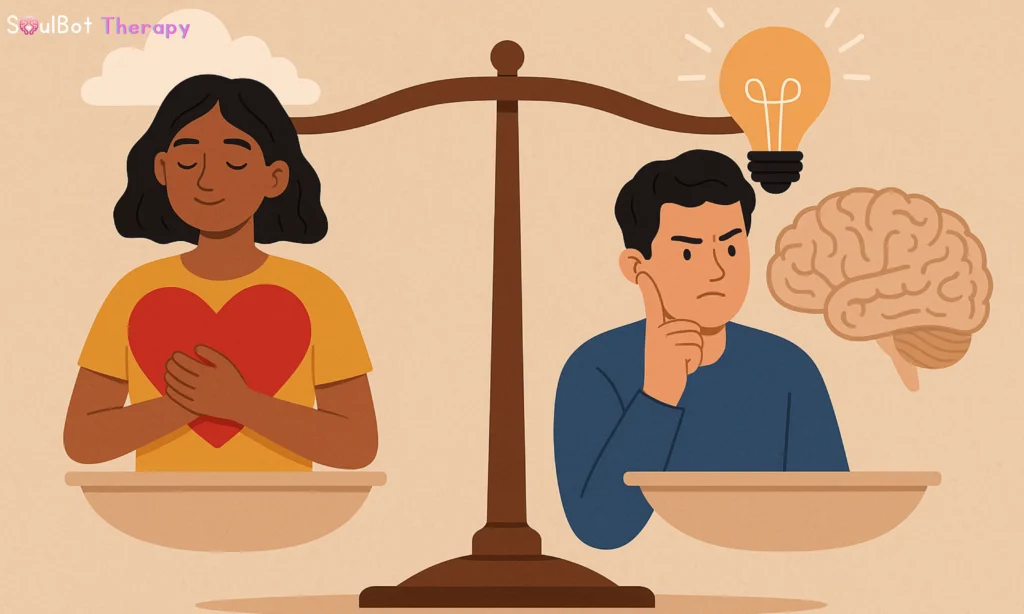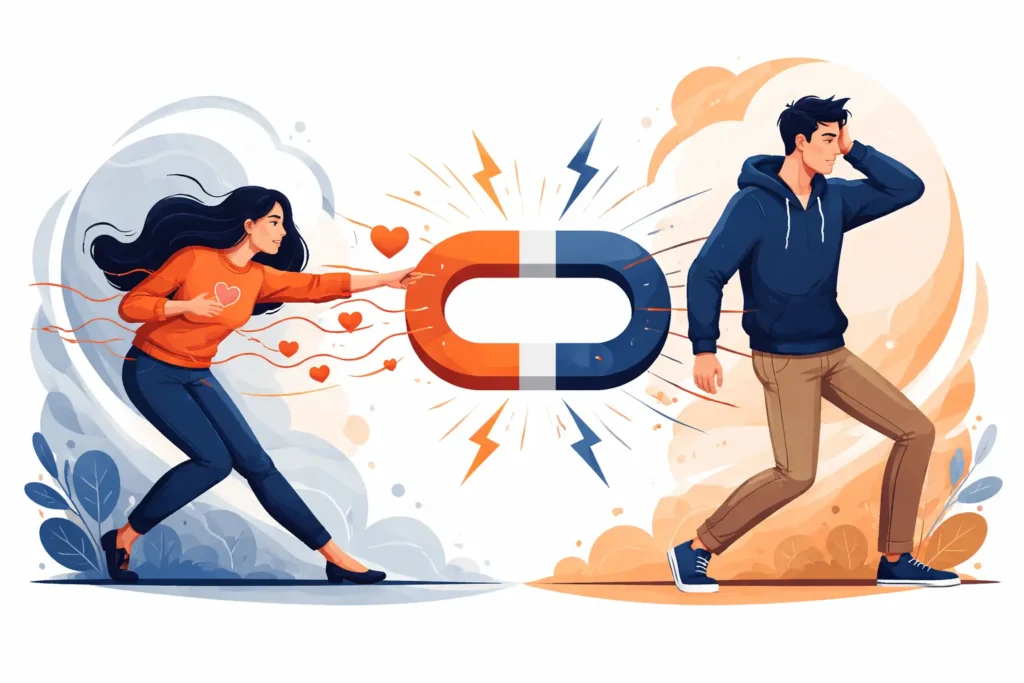For decades, society has measured intelligence with IQ tests, logic, math skills, and problem-solving ability. But here’s the twist: success in life isn’t just about brainpower. The rise of emotional intelligence vs. IQ has sparked a debate about what really matters more for relationships, careers, and mental health.
👉 Curious where you stand? Take our Emotional Intelligence Test today.What’s the Difference Between Emotional Intelligence and IQ?
- IQ (Intelligence Quotient) measures cognitive abilities like reasoning, logic, and memory. A high IQ predicts academic performance and problem-solving skills.
- EQ (Emotional Intelligence): Measures your ability to recognize, understand, and regulate emotions, both your own and others’.
Why Is Emotional Intelligence Important for Success?
Emotional intelligence isn’t fluffy; it’s practical. It helps you:
- Navigate conflicts without burning bridges.
- Stay calm under pressure.
- Build trust and empathy in relationships.
- Motivate yourself even when things get tough.
Daniel Goleman, who popularized EQ, argued that the importance of emotional intelligence often outweighs IQ in determining leadership and personal success.
💡 SoulFact: Research shows IQ explains about 20% of life success, while emotional and social skills fill in much of the rest.
Does IQ Still Matter in Today’s World?
Absolutely. A high IQ still gives an edge in:
- Academic achievement.
- Technical problem-solving.
- Analytical and research-heavy careers.
But IQ alone doesn’t guarantee happiness, resilience, or leadership. Without EQ, people often struggle with relationships and stress.

EQ vs IQ in the Workplace: Which Predicts Better Performance?
Employers increasingly value EQ. Why? Because workplaces are social ecosystems.
- IQ in the workplace: Useful for technical knowledge and task execution.
- EQ in the workplace: Essential for teamwork, leadership, and stress adaptation.
🔗 SoulFact: Over 80% of workplace success is linked to high EQ, showing that communication and empathy often outshine raw intelligence.
How Do Emotional Regulation Skills Impact Mental Health?
This is where EQ shines brightest. People with higher EQ:
- Cope better with stress and anxiety.
- Recover faster from setbacks.
- Maintain stronger, healthier relationships.
Meanwhile, those relying only on IQ may excel academically but struggle emotionally. This makes EQ a key factor in overall intelligence and mental health.
So, Which Matters More, EQ or IQ?
The truth: both matter, but in different ways. IQ may open doors, but EQ keeps them open. IQ predicts potential, while EQ predicts resilience, adaptability, and long-term fulfillment.
Think of it this way: IQ gets you the interview, but EQ gets you the job and helps you keep it.
Conclusion: Balance Over Battle
The debate over emotional intelligence vs IQ isn’t about choosing one over the other. Both are valuable, but while IQ gets you started, EQ sustains success. Emotional intelligence is often the real game-changer in relationships, work, and mental health.
👉 Need daily guidance? Chat with SoulBot, your AI mental health coach, to strengthen emotional regulation skills.







